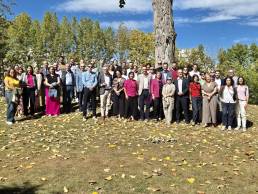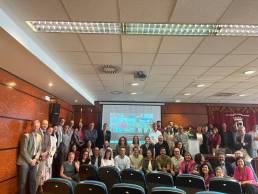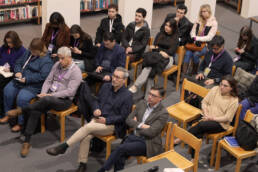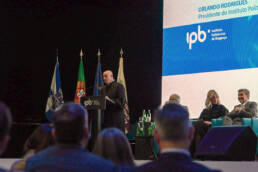The meeting focused on the challenges to be faced to obtain the new qualification
STARS EU participated in the first conference held in Spain on the joint European qualification and the higher education package, organised by the EDLab pilot project led by the Arqus, ENLIGHT, EUTOPIA and SEA-EU alliances. The forum, which was recently held at the Polytechnic University of Madrid, brought together leading professionals and representatives of various academic institutions integrated into the European university alliances, as well as members of other educational organisations.
The national conference focused on addressing the content of the Higher Education Package presented by the European Commission on 27 March, which includes fundamental proposals such as the European Degree project, recommendations on strengthening quality and sustainable careers, as well as promoting debate on its adaptation in Spain.
This package has a significant impact on the future of higher education in Europe and Spain, a fact that was evident during the development of the ‘Conference on the European Diploma and the Higher Education Package’, in which three essential measures for the future of the higher education system were addressed. On the one hand, the implementation of the European Diploma seal, as recommended by the European Commission; on the other, the implementation in Spain of more attractive and sustainable degrees. Thirdly, the challenges posed by the constitution of European alliances as legal entities were analysed.
Feasibility of implementation
The forum began with the presentation of the package of proposals by the Directorate General of Education and Culture of the European Commission and continued with the development of several ‘panels’ in which specific aspects of the viability of the implementation of these measures in Spain were addressed.
The opening was given by Alberto Garrido, Vice-Chancellor for Quality and Efficiency at the Polytechnic University of Madrid, and Dorothy Kelly, coordinator of the Arqus Alliance, who highlighted the importance of collaboration between universities to achieve the objectives of the package. Speakers included representatives of the Spanish Ministry of Science, Innovation and Universities, quality agencies, CRUE, and European alliances with Spanish participation, such as CREUP and SEPIE.
According to José Sigut, member of the Steering Committee of STARS EU and general coordinator of the alliance at the University of La Laguna, these sessions have been a “necessary step to better understand this higher education package, as well as the path that must be taken until the implementation of the new degrees”. In addition, regarding the legal status of the Alliances, he noted that there is currently no legal form of association that fully meets the needs of a European university.

Related Posts
February 28, 2026
In2CoP 2026 strengthens co-creation and innovation in higher education within STARS EU
With 60+ prototypes and three award winners, the event generated initiatives…
February 27, 2026
STARS EU convenes an online workshop on Digital Transformation for students
The call, which will be held on 12 June, is aimed at undergraduate, master's…
February 10, 2026
STARS EU partner IPB celebrates 43 years of regional commitment and international cooperation
The formal anniversary ceremony was held in Chaves (Portugal).




